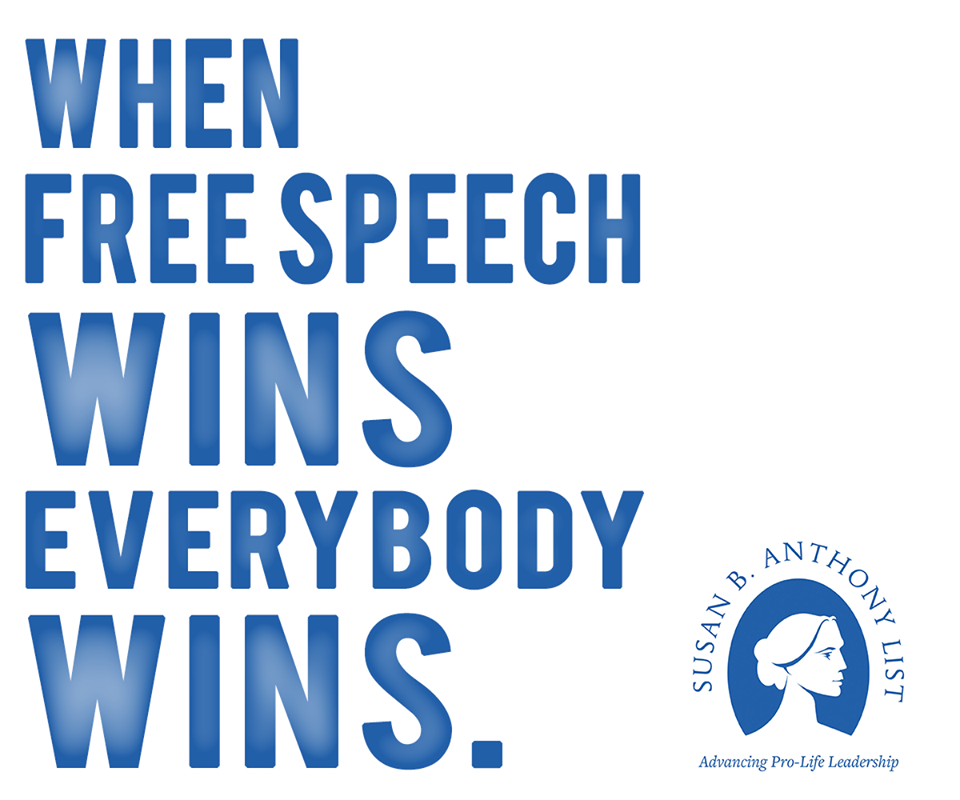On Thursday, a federal court in Ohio struck down a state criminal law banning “false statements” about candidates for office.
Under the law, anyone could lodge a complaint with the Ohio Elections Commission (the “truth squad”) alleging someone made a false statement during the course of an election. If the commission found probable cause, then the case was referred to prosecutors to pursue criminal charges. Potential penalties included up to six months in prison and five thousand dollars in fines.
The pro-life advocacy group Susan B. Anthony List challenged the false-statements ban after it was haled before the Elections Commission for seeking to put up billboards during the 2010 election criticizing then-Representative Steven Driehaus, D-Ohio, for voting for taxpayer-funded abortion. Driehaus claimed this was a lie, but Susan B. Anthony List argued that its statement was not false because it was referencing Driehaus’s vote for Obamacare. The case ended up at the Supreme Court last term after a lower court ruled that Susan B. Anthony List lacked standing to challenge the law. The Supreme Court reversed in a 9-0 decision, finding that the group had a “sufficiently imminent injury.” Thus, Susan B. Anthony List’s constitutional challenge could continue in court.
District court Judge Timothy Black ruled this week that Ohio’s false-statements ban violates the First Amendment’s Free Speech Clause. The state argued that lies—just like “fighting words,” obscenity, and defamation—are not protected by the First Amendment, and that this law protected voters “from being swayed by lies.” But Black rejected these arguments, acknowledging that while lies “have no place in the political arena…we do not want the Government…deciding what is political truth.”
A Susan B. Anthony List Facebook graphic celebrating the ruling in their favor.
“In a democracy,” the judge concluded, “the voters should decide.”
Black determined that the law was a content-based restriction, which meant the state had to show the law was narrowly tailored to achieve a compelling state interest. Black found that the law failed this high level of review. There was no evidence the law advanced the state’s compelling interest of protecting election integrity—“paternalistically protecting the citizenry at large from ‘untruths’ identified by Government appointees,” as the judge put it.
Likewise, the law was not narrowly tailored given the alternative—much less restrictive—means of protecting against false statements: the truth. Black noted, “[S]ome false statements are inevitable if there is to be an open and vigorous expression of views,” but the solution (quoting House of Cards protagonist Frank Underwood), is to “overpower a trickle of doubt…with a flood of naked truth.”
As the Cato Institute and P.J. O’Rourke argued in their amicus brief supporting Susan B. Anthony List at the Supreme Court,
Truthiness, insinuations, and allegations are a vital part of political speech…Inflammatory, insulting, and satirical speech is more likely to produce a response, thus making the back-and-forth of politics a self-correcting marketplace of ideas—except, of course, when candidates can tattle to the government.
This decision is a victory for free speech, even if it doesn’t elevate the level of political discourse beyond name-calling and mudslinging. Americans have the freedom to decide for themselves who to believe and what is the truth.
This piece originally appeared in The Daily Signal



